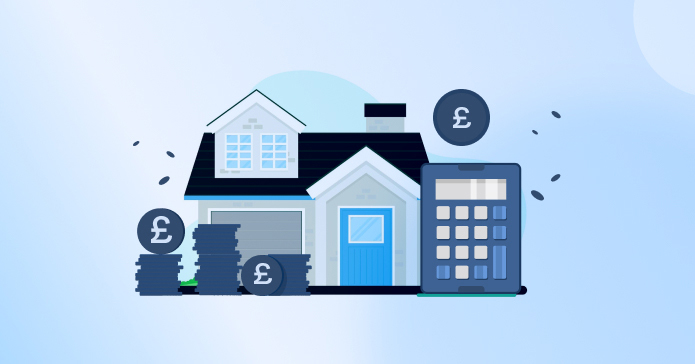Handling capital gains tax can feel like navigating a maze, especially when it comes to something as personal as inherited property. Whether you're a real estate investor, an inheritance beneficiary, or a tax advisor, grasping the ins and outs of these taxes is key. In this blog post, we'll break down capital gains tax on inherited property, giving you the insights needed to make smart choices.
Capital Gains Tax vs. Inheritance Tax
Let's clear up the confusion between two terms that often get mixed up: capital gains tax and inheritance tax. Both deal with taxes on property, but they have different roles and kick in at different times.
- Inheritance tax is what happens to a deceased person's estate before it's given to the heirs. In the UK, there's no tax on the first £325,000, but anything over that can get taxed up to 40%. Though, thanks to some allowances, most estates end up paying around 6%.
- Now, capital gains tax is a bit different. It pops up when you sell an inherited property. This tax is on the profit you make from the sale — that's the sale price minus the property's value when you inherited it, after some deductions.
How Much Capital Gains Tax Will I Pay?
When selling an inherited property, calculating the capital gains tax can become a daunting task. The tax liability depends on several factors, including the property's value at inheritance, the sale price, and any allowable deductions. Capital Gains Tax Rates are here. But if you are looking for an instant result to see how much capital gains tax will you pay on an inherited property, use our capital gains tax calculator.
For instance, if you inherited a property valued at £200,000 and later sold it for £300,000, your capital gain would be £100,000. After deducting allowable expenses like legal fees and upgrades, you calculate the taxable amount. Suppose these expenses total £12,000, and you have a tax-free allowance of £3,000. Your taxable profit would be £85,000. If you're in a higher tax bracket, a 24% capital gains tax rate might apply, resulting in a tax liability of £20,400.
Inheritance Tax on Parents' House
If you've recently inherited your parents' home, you may wonder whether inheritance tax applies. Typically, if the estate's total value surpasses the £325,000 threshold, inheritance tax is due. However, there are allowances and exemptions, such as the residence nil-rate band, which can increase the threshold when passing on the family home to direct descendants.
It's essential to understand that inheritance tax is distinct from capital gains tax (up). The former is applicable upon inheritance, while the latter is only relevant when the property is eventually sold.
The 36 Month Rule for Capital Gains Tax
The 36-month rule is an important consideration for anyone selling an inherited property. This rule states that if an inherited property is sold within 36 months of the decedent's death, the sale is exempt from capital gains tax.
This exemption can be particularly advantageous, offering an opportunity to sell the property without incurring additional tax liability. However, it's crucial to note that this rule applies primarily to principal private residences and may not extend to second homes or properties used for rental purposes.
Is Capital Gains Tax-Free Uplift on Death?
A common question among beneficiaries is whether capital gains tax applies to the inherited property's value uplift upon the owner's death. In general, capital gains tax is not applicable at the time of inheritance. Instead, it is calculated based on the property's value at the time of inheritance when the property is eventually sold.
This means that if the property's value increased significantly after inheritance, the capital gains tax would only apply to the difference between the sale price and the value at inheritance. This provision can help mitigate tax liabilities, especially in cases where property values appreciate over time.
Understanding Allowances and Deductions
To effectively manage your capital gains tax liability, it's essential to be aware of available allowances and deductions. These can significantly impact the final tax amount you owe.
For instance, expenses related to property improvements, such as renovations or extensions, can be deducted from the capital gain. Similarly, legal and selling fees incurred during the property sale can also be subtracted.
Understanding these deductions and capital gains tax allowances ensures you only pay tax on the actual profit gained from the property sale.
Navigating the Inheritance Tax Landscape
Understanding the intricacies of inheritance tax is crucial if you want to avoid unnecessary complications. With the current threshold set at £325,000, it's important to know how various allowances and exemptions can impact your tax liability.
One notable allowance is the residence nil-rate band, which can increase the threshold when passing on the family home to direct descendants. Additionally, gifts made to spouses or civil partners are typically exempt from inheritance tax, allowing for strategic estate planning.
For larger estates, professional advice may be necessary to explore options like trusts, lifetime gifts, and charitable donations, all of which can help mitigate the tax burden.
How to Calculate Capital Gains Tax on Inherited Property Sales
Calculating capital gains tax on property sales involves several important steps. Let's break it down with a comprehensive example:
Imagine you inherited a property valued at £150,000 and sold it for £250,000. Your capital gain would be £100,000. From this amount, you can deduct allowable expenses, such as £5,000 in legal fees and £8,000 for renovations, leaving a taxable gain of £87,000.
Applying a tax-free allowance of £3,000, your taxable profit would be £84,000. If you fall into a higher tax bracket, the applicable capital gains tax rate might be 24%, resulting in a tax liability of £20,160.
Understanding these calculations empowers you to make informed decisions and manage your property sale taxes effectively.
Try our capital gains tax on inherited property calculator here
Ways to Reduce Capital Gains Tax
To effectively reduce your capital gains tax liability, consider these strategic approaches:
- Timing the Sale: Plan your sale during a year when your income is lower, which may place you in a reduced tax bracket.
- Utilizing Allowances: Maximize the use of tax-free allowances and deductible expenses to decrease your taxable gains.
- Joint Ownership: If applicable, opt for joint ownership with a spouse to benefit from both partners' tax-free allowances.
- Professional Guidance: Consult with tax advisors or financial experts to discover opportunities for tax minimization.
- Charitable Donations: Donating a portion of the proceeds to charity can offer additional tax relief.
Understanding Capital Gains Tax on Second Homes
If you own a second home, capital gains tax may apply when you sell it. However, there are specific rules and reliefs that can help mitigate the tax burden.
One notable relief is the Private Residence Relief (PRR), which can apply if the property served as your main residence at any point. Additionally, the 36-month rule mentioned earlier may offer an exemption if the property is sold within a specific timeframe.
Understanding these rules ensures you make informed decisions and take advantage of available reliefs when selling a second home.
Why Professional Advice Matters
Navigating capital gains and inheritance taxes can be daunting, but with the right guidance, it doesn't have to be. Seeking professional advice is essential. Tax advisors and financial planners are your allies in understanding complex tax laws, helping you craft an optimized tax strategy.
Working with these experts ensures compliance with changing regulations and helps reduce tax liabilities, giving you peace of mind during property sales and inheritance. Don't go it alone; let the professionals lead the way!
Why You Should Hire Debitam
Understanding capital gains tax on inherited property is crucial for real estate investors, inheritance beneficiaries, tax advisors and anyone in the property industry. This tax differs from inheritance tax, and knowing the difference is key to effective tax planning and decision-making.
Here at Debitam, property owners make up the most of our client basis . That's why we continue to provide comprehensive tax resources and expert advice to help our clients manage their property sales taxes effectively.
We can help you with capital gains tax on inherited property sales, as well as other tax-related matters. Call us, chat us, or just ask us today to learn more and start optimizing your taxes for a brighter financial future!













